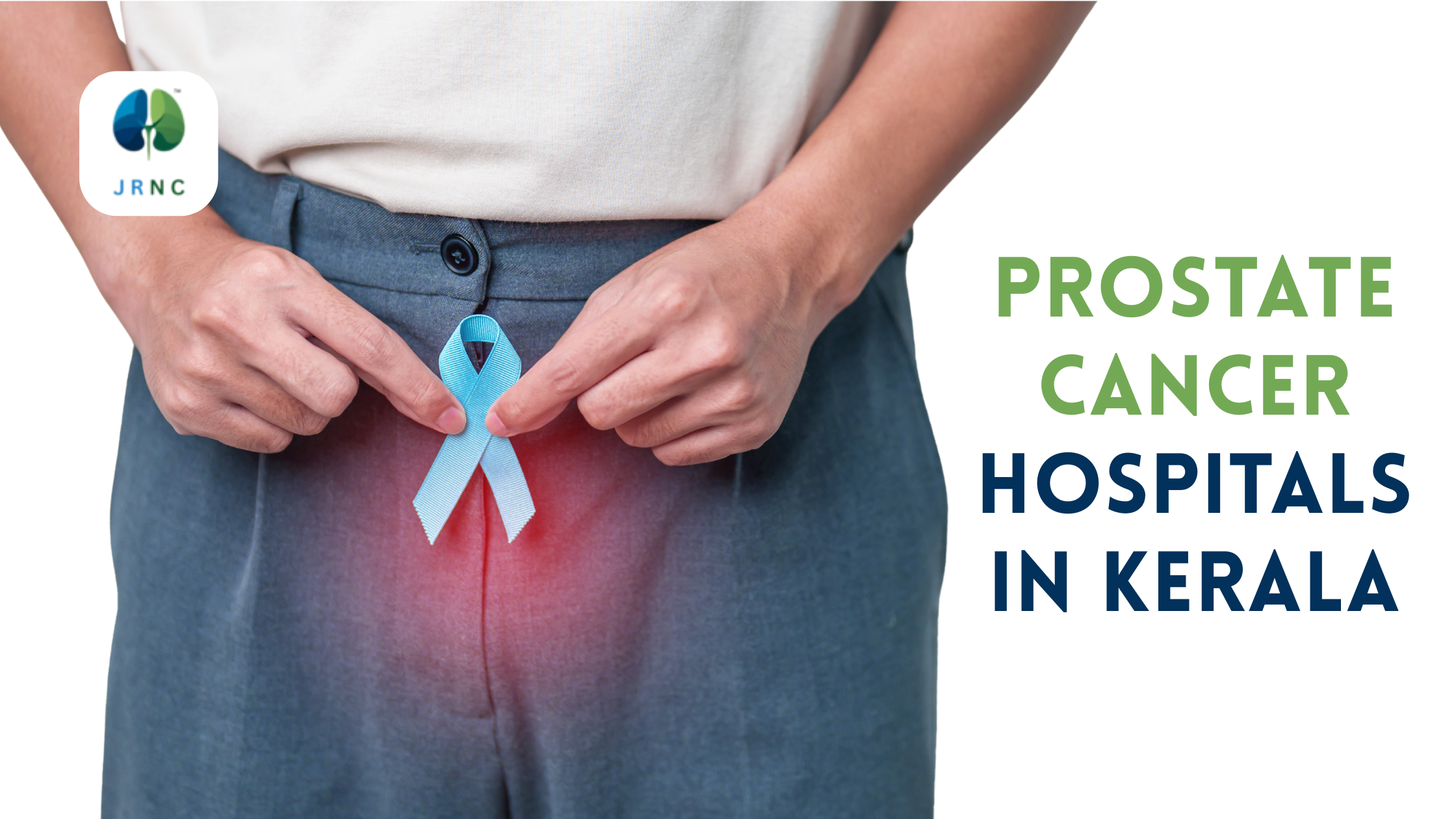
Prostate cancer is a serious health concern among men worldwide. Early detection, expert treatment, and holistic care are essential in reducing its impact and improving quality of life. Kerala has several centres offering advanced prostate cancer care, but one facility rising in prominence is SDC Prostate Research & Training Centre, located in Kanimangalam, Thrissur. Let’s explore what makes a good prostate cancer hospital, what SDC offers, other options in Kerala, and what patients should know when seeking treatment.
What is Prostate Cancer?
Prostate cancer arises when cells in the prostate gland (a male reproductive organ located below the bladder and ahead of the rectum) begin to grow uncontrollably. Some key points:
It is more common in older men (usually above 50-60 years).
Many prostate cancers are slow growing, some are more aggressive.
Early stages may not show symptoms; later, symptoms can include urinary problems (difficulty urinating, weak stream, frequent urination), blood in urine or semen, discomfort, or bone pain if metastases happen.
Early detection via screening (PSA testing, digital rectal exam, imaging) improves outcomes significantly.
What Makes a Good Prostate Cancer Hospital?
When you are choosing a hospital for prostate cancer in Kerala (or anywhere), here are key factors to consider:
| Feature | Why It Matters |
|---|---|
| Multidisciplinary Team (urology, oncology, radiology, pathology, physiotherapy) | Because diagnosis, surgical treatment, radiation, hormonal therapy, and follow-up all need coordination. |
| Advanced Diagnostics | Good imaging (MRI, CT), biopsy facilities, molecular testing helps stage the disease correctly. |
| Surgical technology | Options like laparoscopic, robotic surgery (if available), open surgeries, methods that reduce side-effects (urinary incontinence, sexual dysfunction). |
| Radiation & Other Non-Surgical Therapies | External beam radiotherapy, brachytherapy (if offered), hormone therapy, etc. |
| Patient-Centred Care | Counseling, support services (nutrition, psychology), rehabilitation. |
| Accessibility & Affordability | Location, insurance coverage, reasonable costs. |
| Follow Up & Monitoring | Because prostate cancer often requires long-term monitoring. |
SDC Prostate Research & Training Centre, Thrissur: What They Offer
Based on their website and other public information, here are details about SDC Prostate Research & Training Centre in Thrissur (Kanimangalam) and how it could serve people with prostate cancer or related prostate diseases.
Overview
SDC Prostate Research & Training Centre, Kanimangalam, Thrissur, Kerala.
It is a dedicated prostate & kidney treatment centre.
Focus is not only on prostate diseases (like benign prostatic hyperplasia, BPH) but also on kidney issues.
Services & Treatments
Although the website emphasizes treatments mainly for benign prostate conditions, SDC appears to also handle prostate cancer (or at least include it among diseases treated) and the infrastructure for prostate care. Here are services they list or are implied:
Diagnostic services: lab tests, imaging, ultrasound etc. for prostate & kidney conditions.
Minimally invasive treatments/procedures for prostate enlargement (BPH), such as:
‒ REZUM procedure (a water-vapor therapy) for BPH.
‒ Urolift, prostatic artery embolization, HoLEP and ThuFLEP (laser enucleation/transurethral techniques).Kidney stone management.
Laser prostate surgery.
A “training” component—suggestion that the centre is also involved in research/training.
What is Less Clear / Potential Gaps
It is not entirely clear from the publicly available material how extensive is their treatment for advanced prostate cancer (e.g. radical prostatectomy, radiation therapy, chemotherapy). The emphasis seems more on benign or less-aggressive conditions.
The level of availability of technologies like robotic surgery is not clearly mentioned in their info.
How much of their infrastructure is dedicated to cancer vs benign disease is not fully described.

How SDC Fits In
Given the information, SDC can serve as a Centre of Choice especially for:
Patients with early stage or moderate prostate disease, especially benign enlargement (BPH) who wish to avoid major surgeries or want minimally invasive options.
Patients looking for diagnostic / surveillance / screening for prostate issues.
Those in Thrissur or nearby regions who prefer local care.
For advanced, aggressive prostate cancers (where radical surgery, radiotherapy, systemic therapy may be needed), SDC may either provide or refer, depending on its capacity.
Steps in Prostate Cancer Treatment
Here is a typical care pathway when someone is diagnosed or suspected of prostate cancer:
Screening / Detection
Digital rectal exam (DRE)
Imaging (ultrasound, MRI)
Biopsy for Confirmation
If imaging or PSA suggests cancer, a biopsy is done to confirm, often guided by ultrasound or MRI.
Staging & Grading
Determining how aggressive (Gleason score) and how far along (local, lymph node, distant metastases).
Treatment Planning – depends on stage, patient age, comorbidities, patient preference. Options include:
Active surveillance (for low-risk, slow growing)
Surgery (radical prostatectomy—open, laparoscopic, robotic)
Radiation therapy (external beam, brachytherapy)
Hormone therapy (androgen deprivation)
Chemotherapy / targeted therapy (for more advanced disease)
Surgery or Treatment
Undergo whatever strategy is selected, with considerations for quality of life (continence, erectile function).
Post-treatment follow up
Monitoring PSA levels, imaging if needed
Managing side effects (continence, sexual health)
Rehabilitation, psychosocial support
In early stages, prostate cancer may not cause symptoms. Later symptoms may include frequent urination, difficulty starting/stopping urine flow, weak stream, urgency, blood in urine or semen, pain in pelvic area or back (if metastasis).
Generally, men above 50 should consider screening. If there is a family history of prostate cancer, screening may begin earlier (around 40-45 years). If you have urinary symptoms, see a urologist. Early detection improves outcomes.
Costs vary widely. Treatment costs depend on type of cancer, stage, choice of surgery vs radiation, hospital, whether you use private or public facility. Some treatments are more affordable in India compared to many other countries, but financial planning and checking insurance is essential.
From available information, SDC’s primary focus appears to be benign prostate disease + diagnostic / surveillance side. It’s less clear how much they offer for aggressive cancer treatment (e.g. open/robotic radical surgeries). Patients should contact them directly to confirm whether radical cancer surgery is available.
Yes. There are options like REZUM, Urolift, HoLEP / ThuFLEP, laser prostate surgery, etc., especially for benign prostate enlargement. These reduce hospital stay, recovery time and side effects. SDC provides many of these
Risks depend on type of treatment but may include urinary incontinence, erectile dysfunction, infection, bleeding, long term need to manage side-effects, impact on quality of life.
Recovery time depends on treatment: minimally invasive surgeries have shorter hospital stay, faster return to daily activities. Major surgeries or radiation may need several weeks or more. Long-term follow up and lifestyle support matter.
Conclusion
Prostate cancer is a life-threatening condition but one where early detection and skilled treatment can make a big difference. In Kerala, patients have a growing number of quality hospitals and specialized centres that offer modern diagnostic and treatment options. SDC Prostate Research & Training Centre in Thrissur is a promising facility, especially for prostate and kidney health, with modern, minimally invasive options, diagnostics, and a training/research component.
If you or a loved one are facing prostate problems—especially elevated PSA, urinary symptoms, or family history—it’s wise to:
Seek evaluation at a reputed centre as early as possible.
Ask about all your treatment options, side effects, and what recovery will look like.
Check if the hospital has the necessary technology and experts (surgical, oncologic).
Plan for long-term follow up, including PSA monitoring, lifestyle modifications.
With the right care, many men overcome prostate cancer, live well, and maintain good quality of life. Kerala’s medical landscape, with both public and private specialised centres, offers multiple good choices—SDC being one of them in its field.
